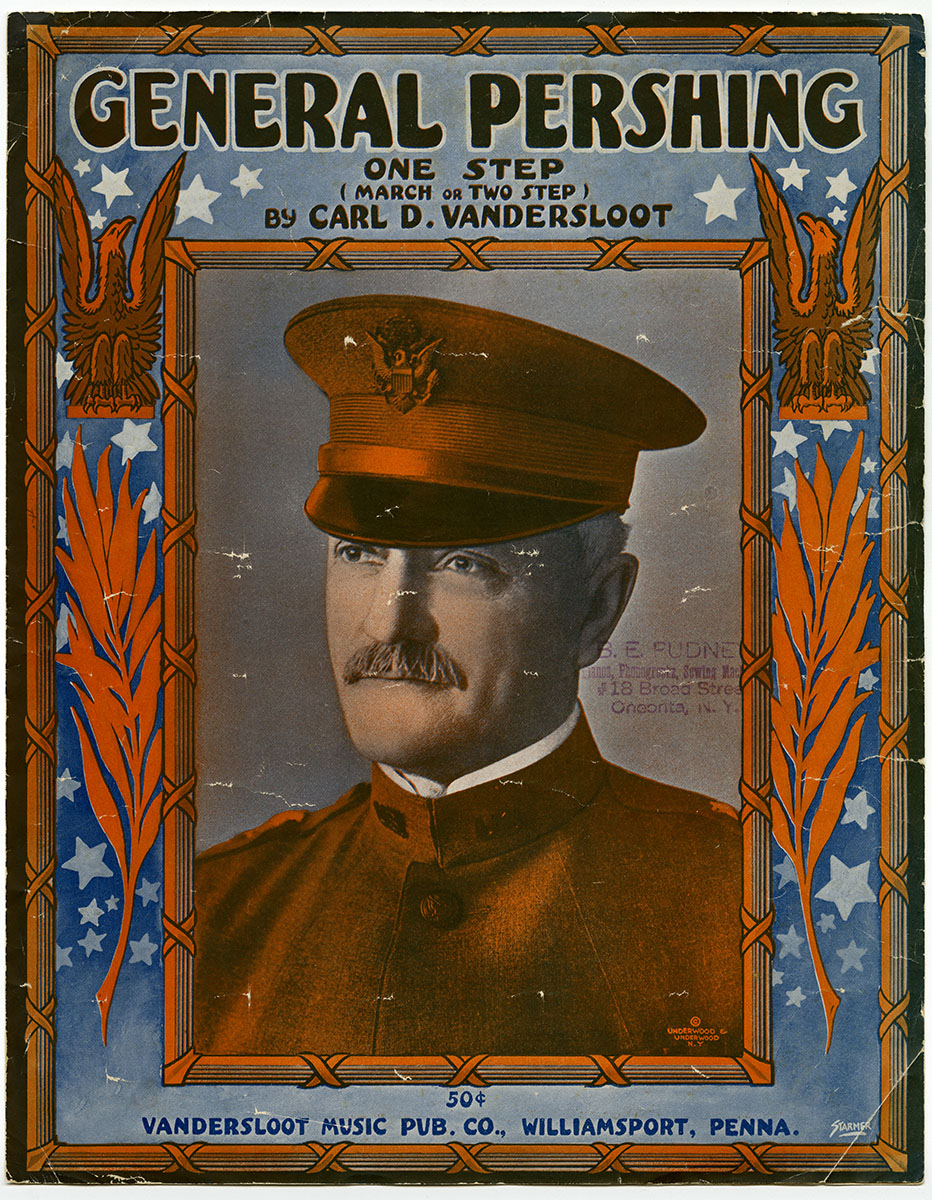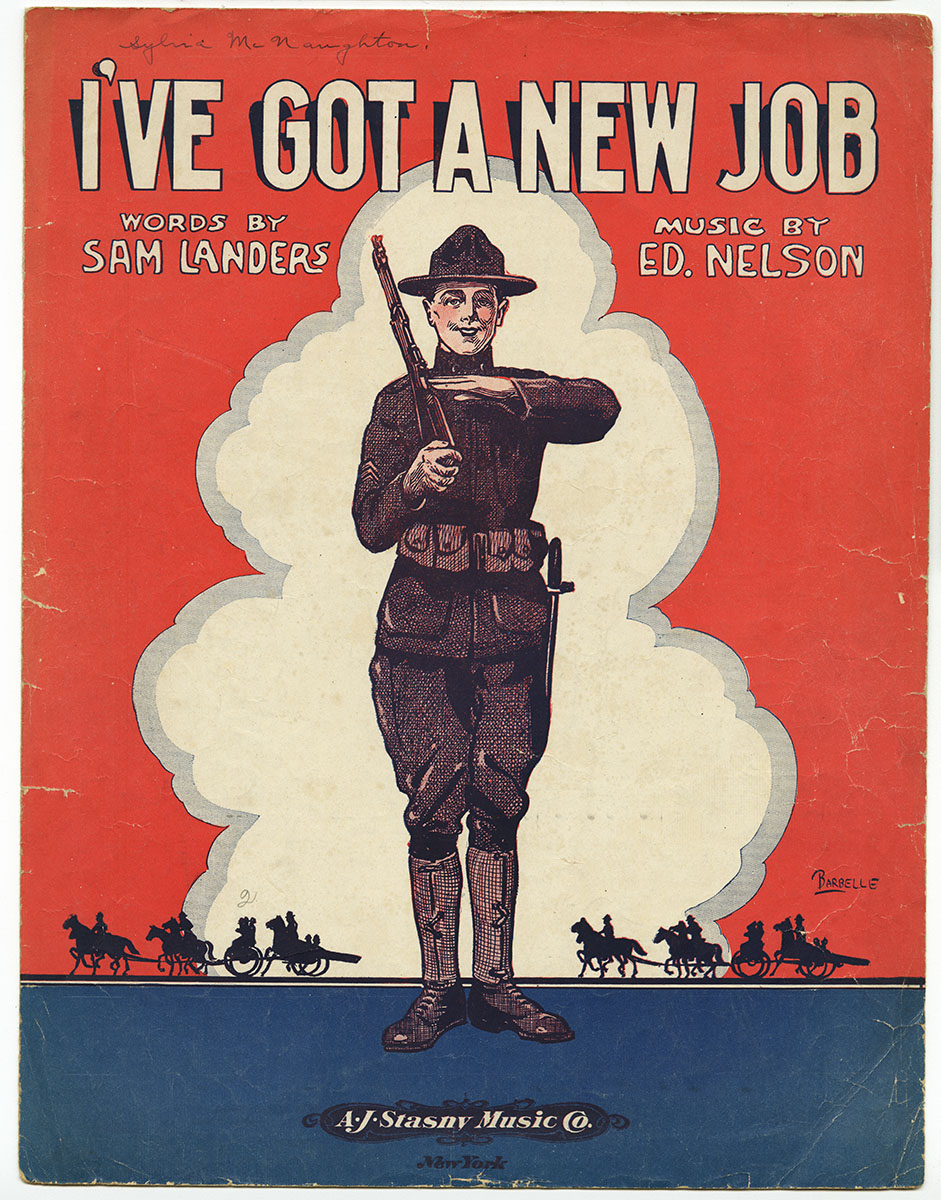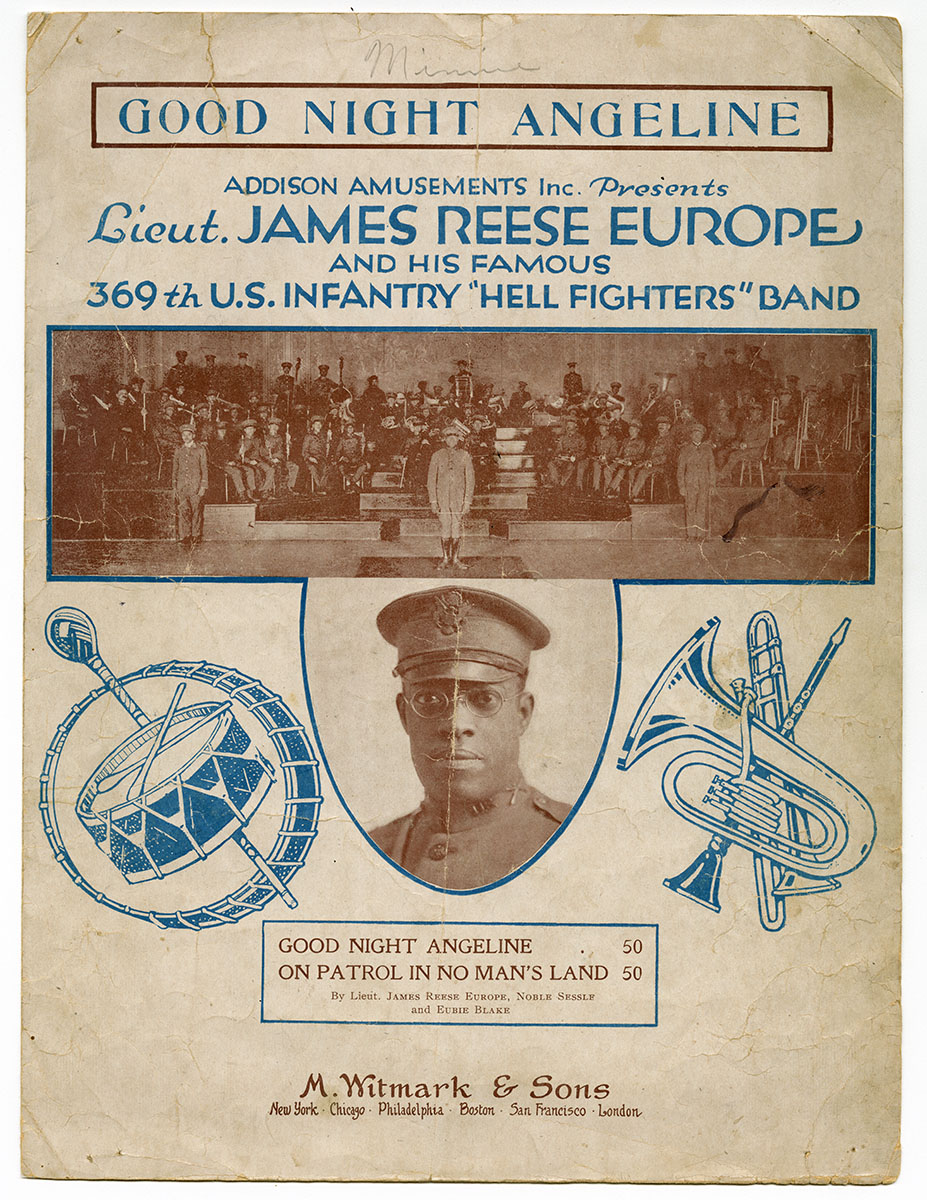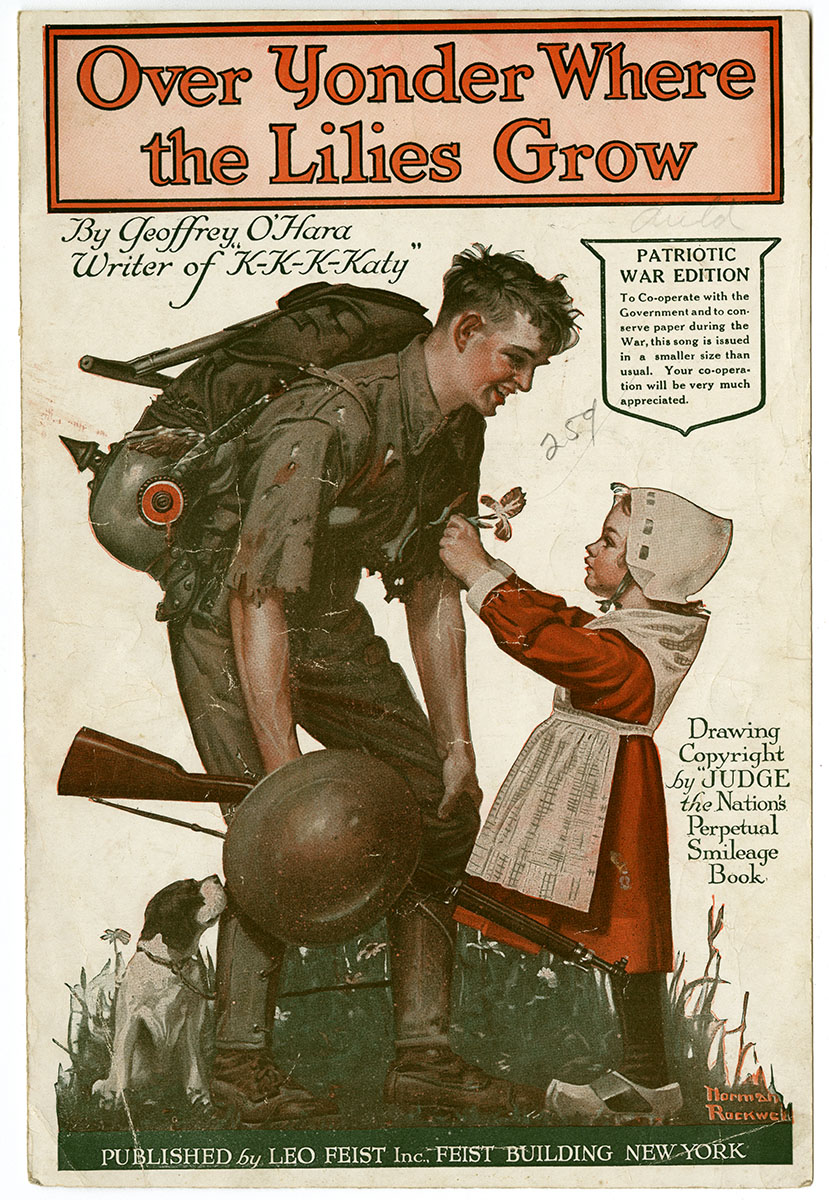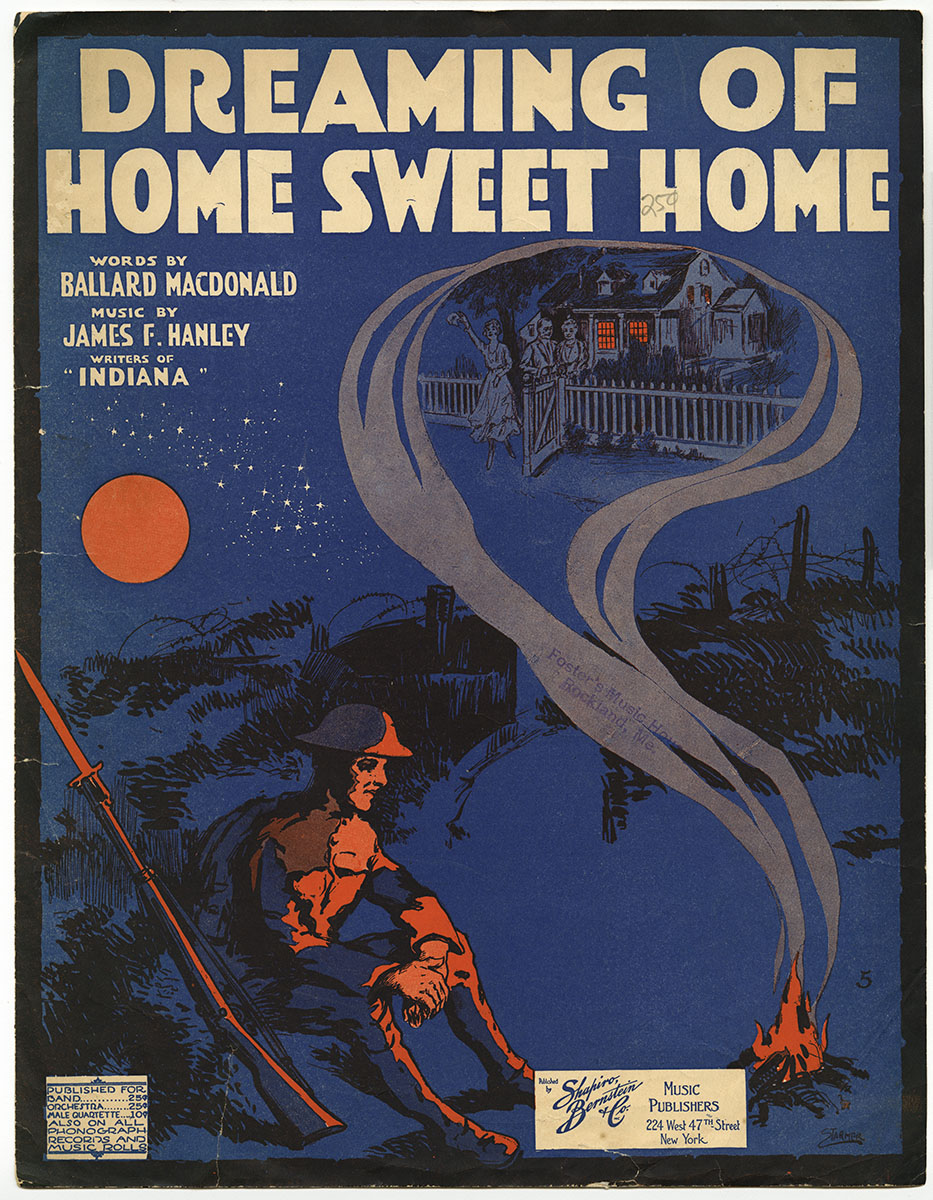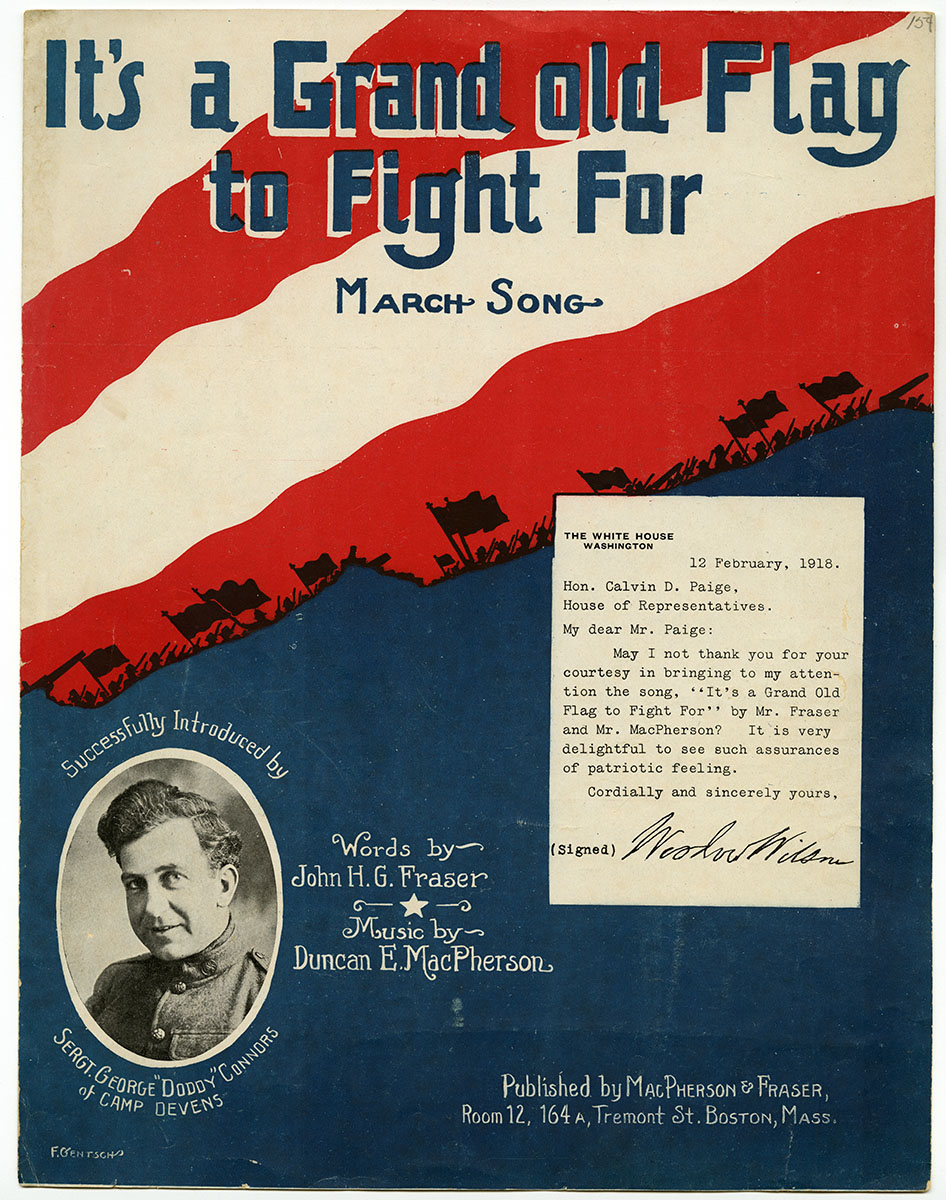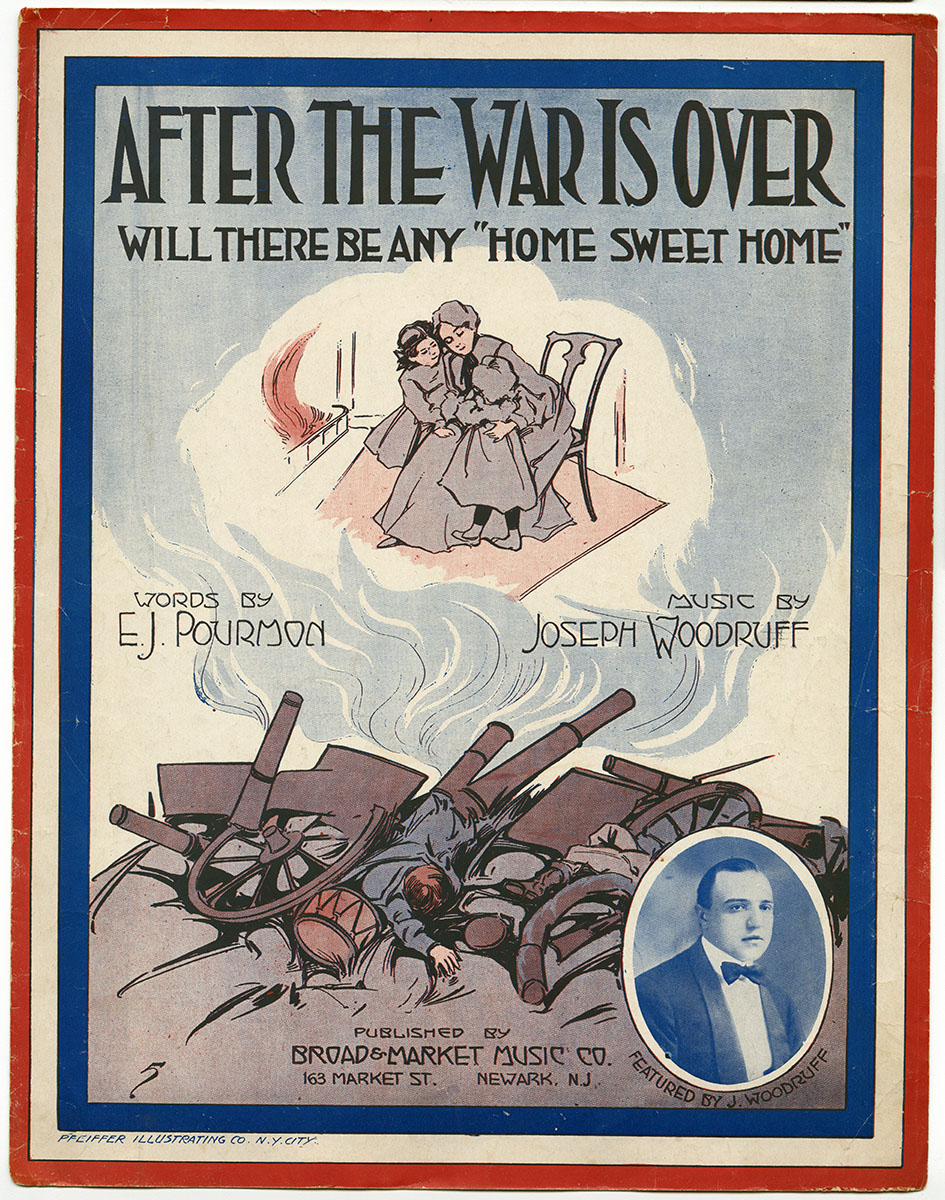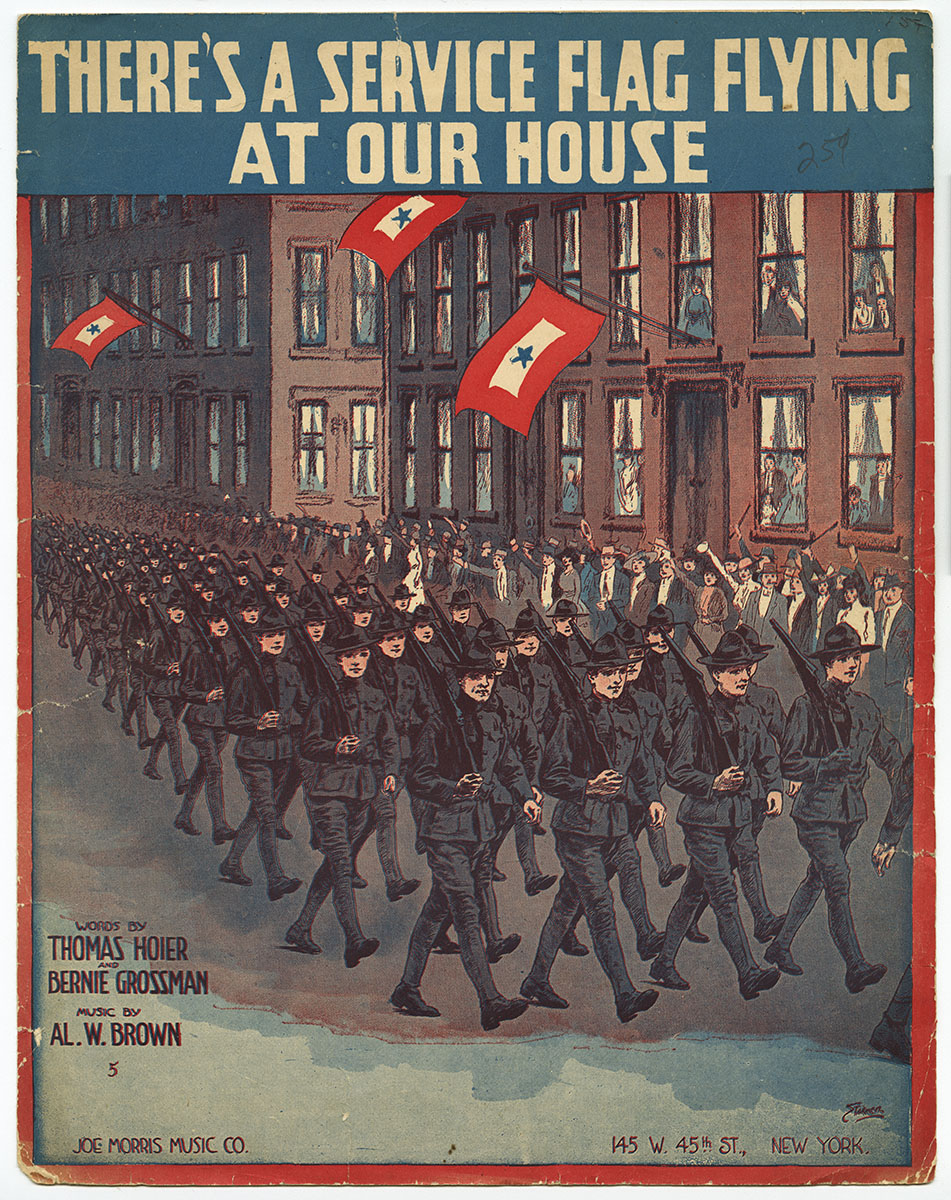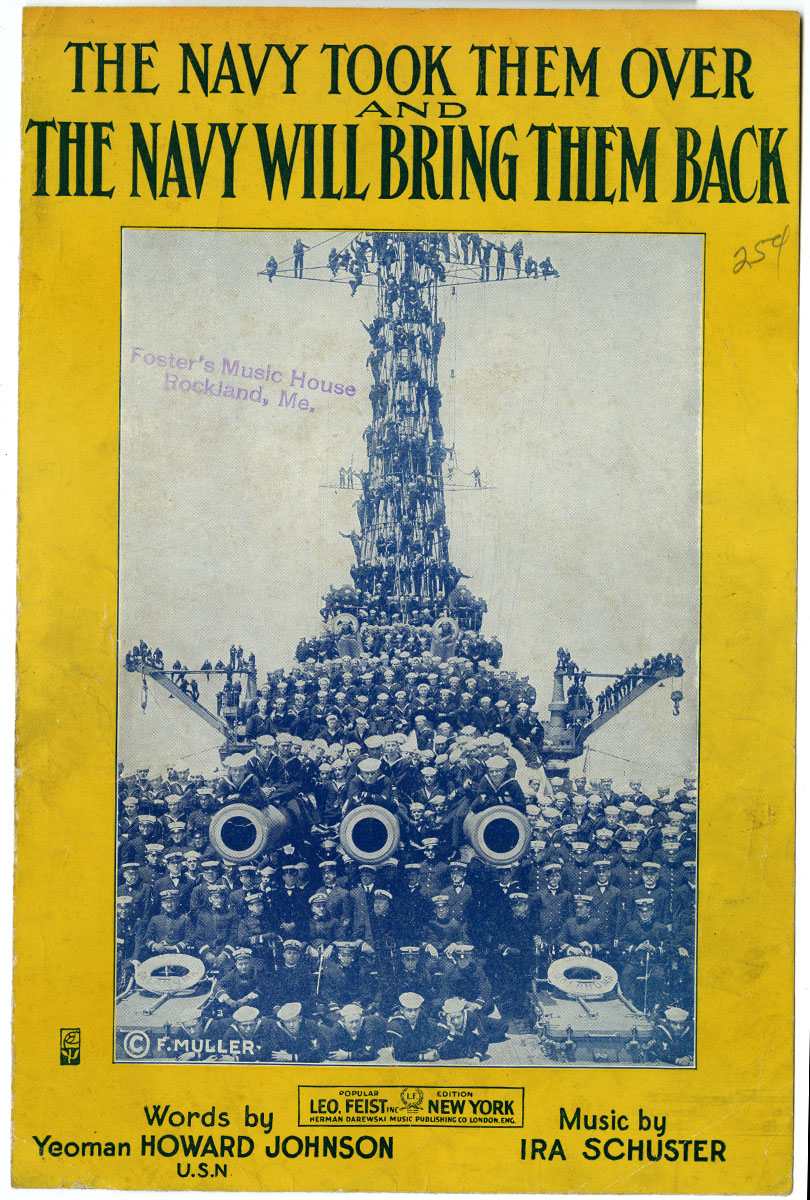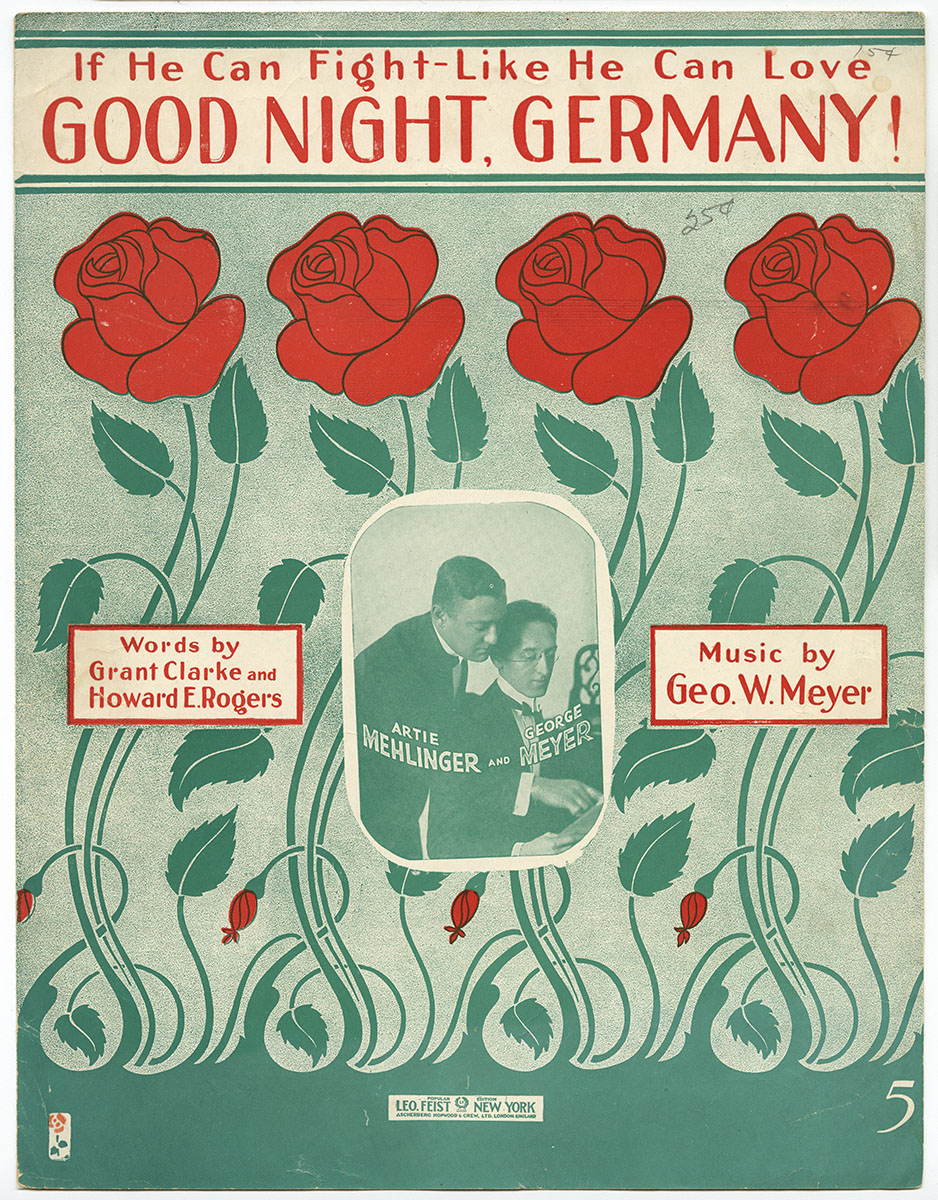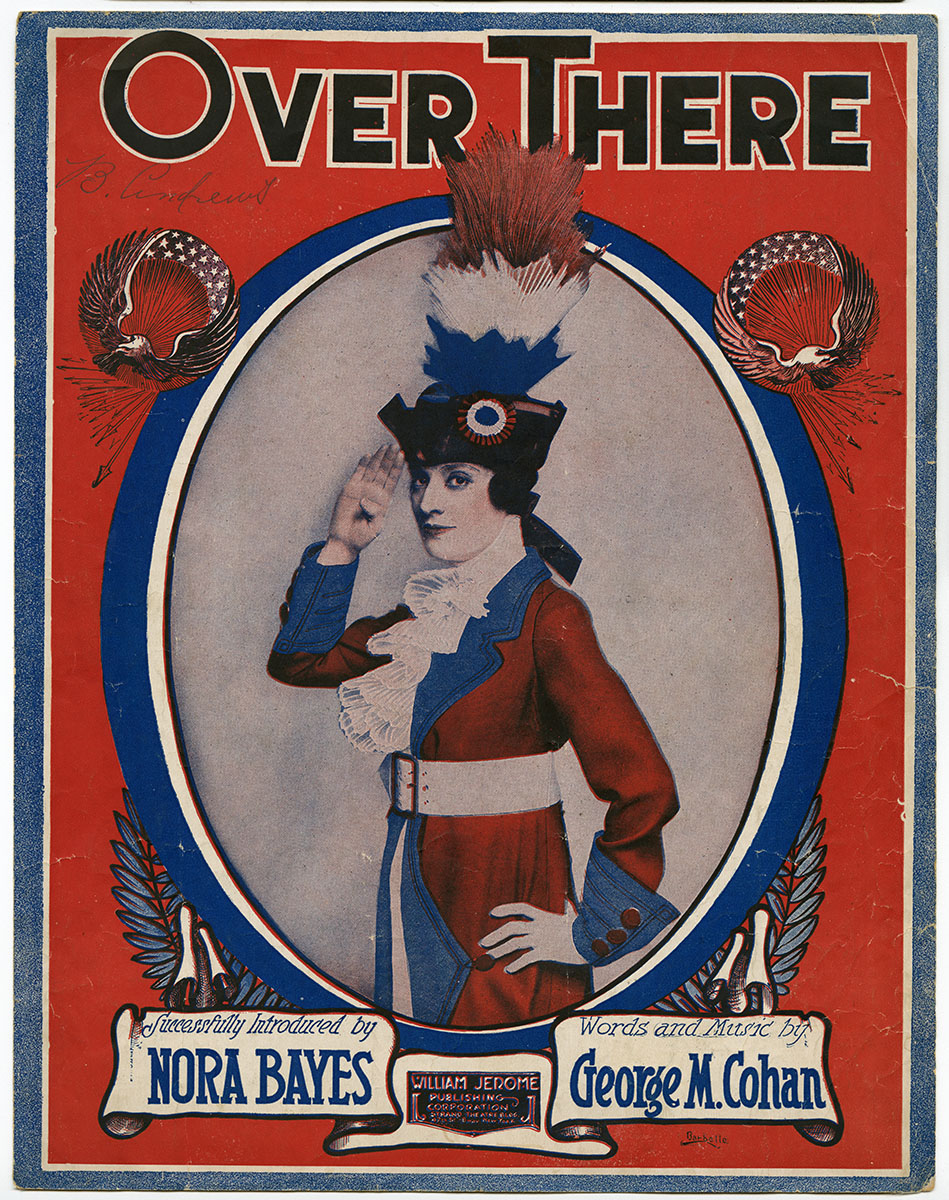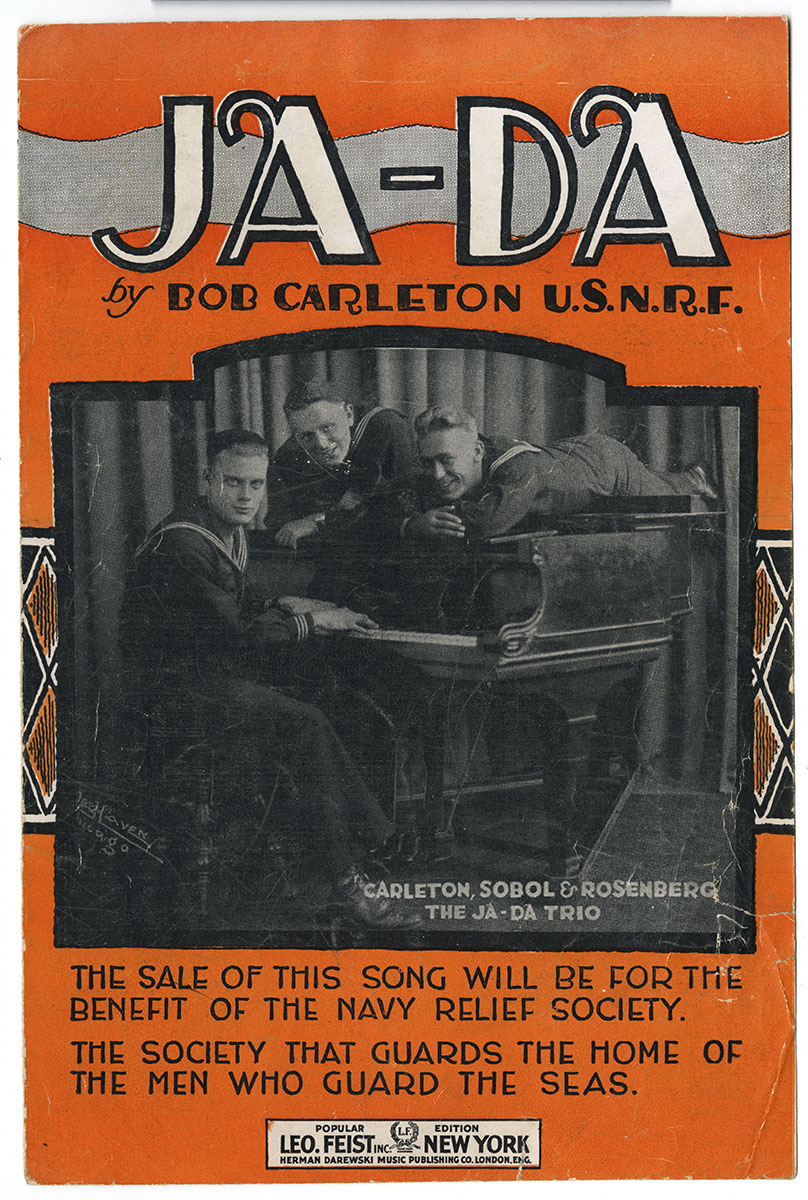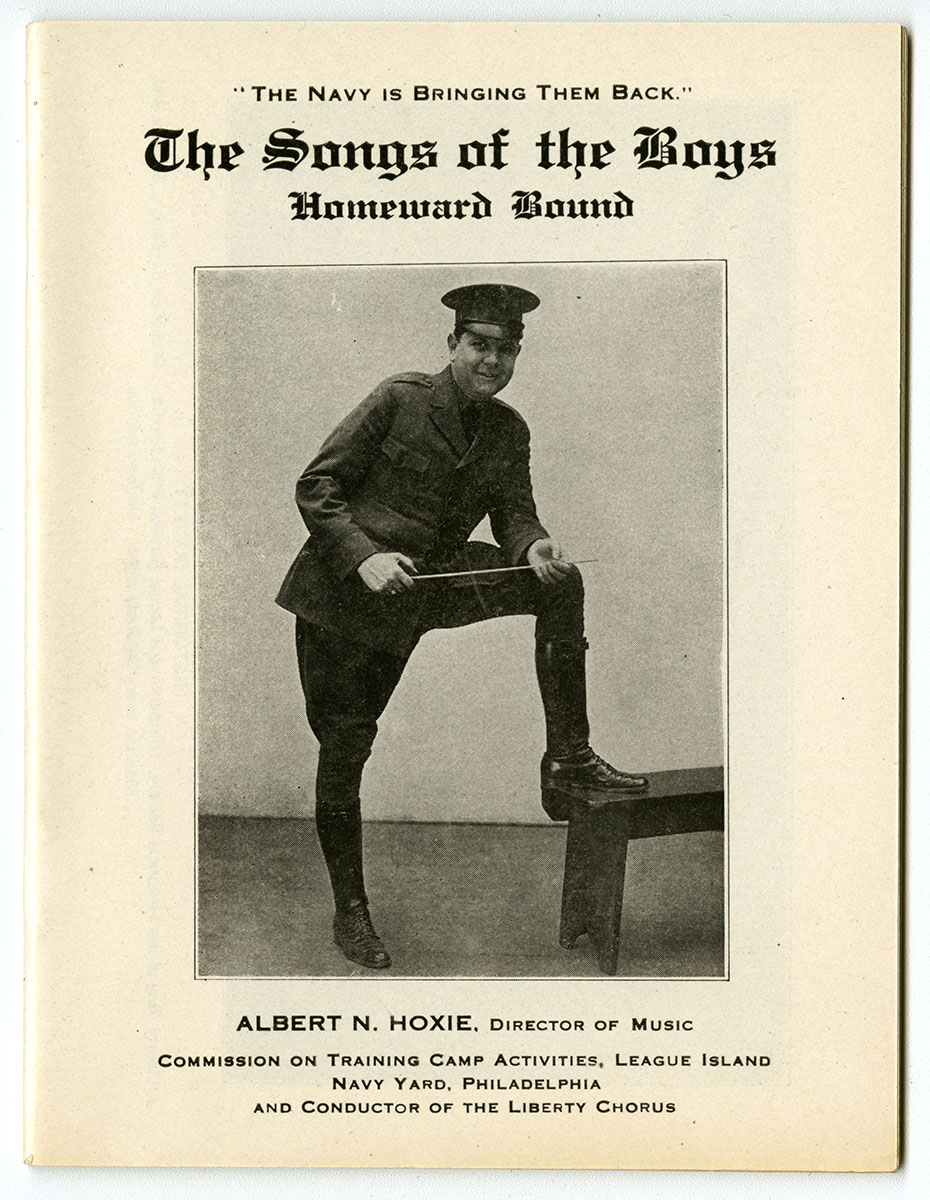Raising Voices in Song
Section 8
Music to support the war effort flooded the market. Music publishers offered songbooks “chock full of ammunition for building morale at the Front and at Home” as well as separate pieces of sheet music. Mostly written for piano with vocal accompaniment, these popular songs urged young men to fulfill their patriotic duty to join the military, honored war heroes, and offered comfort to those left behind on the homefront. Not surprisingly, upbeat lyrics and tempos predominated, but a few songs addressed the devastation of the battlefield and the difficult adjustments to the peacetime world faced by both soldiers and civilians.
YouTube WWI Music Player
For more LCP videos
visit our YouTube Channel.
The Songs of the Boys songbook, 1919. Loan courtesy of the Historical Society of Pennsylvania.
In the spring of 1918, Philadelphia established the Liberty Sing Commission to encourage patriotic songfests in schools, churches, businesses, and outdoor public spaces. The city’s first large Liberty Sing took place on June 28th at the Court of Honor in front of City Hall as part of National Pledge Day, a War Savings Stamp drive. The lyrics to nearly one hundred popular and patriotic songs filled this pocket-sized songbook used at Liberty Sings. Albert Hoxie, music director at the Navy Yard, regularly led Liberty Sings around the city, including at the Historical Society of Pennsylvania’s evening receptions for troops stationed in Philadelphia.


